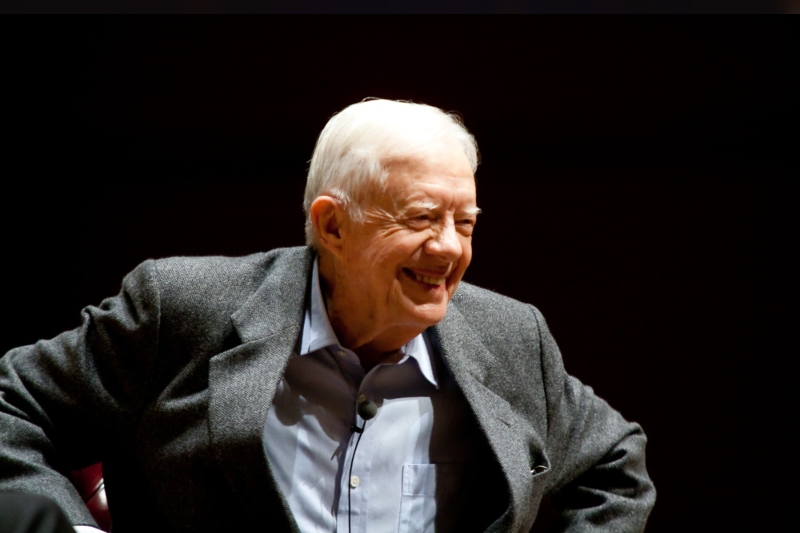Remove ads by Supporting Independent News
Written by: E. George
Published October 11, 2024 @ 3:55 PM ET
SUMTER COUNTY, Ga. – On October 1, 2024, Jimmy Carter, the 39th President of the United States, reached a remarkable milestone, turning 100 years old. This achievement makes him the longest-lived president in U.S. history, a testament to his resilience and enduring spirit.
Celebrations took place in Plains, Georgia, the town where he was born in 1924 and where he has spent much of his life, including his current time under home hospice care.
Carter’s life has been marked by profound social, economic, and political transformations in the United States and worldwide. Born when the U.S. population was about 114 million, he has witnessed its near tripling to approximately 330 million today.
Globally, the population has surged from 1.9 billion at his birth to over 8.1 billion, with significant demographic shifts shaping societies.
Despite these booms, Plains remains a quaint town, with a population that has grown modestly from fewer than 500 in the 1920s to around 700 today. The local economy heavily revolves around the legacy of the Carters.
Carter’s early years were defined by isolationism and protectionism in U.S. politics, themes that have resurfaced in contemporary discourse. In the year of his birth, the Immigration Act of 1924 was enacted, restricting immigration and reflecting a desire to maintain “U.S. homogeneity.”
This period laid the groundwork for political sentiments that resonate today, such as those espoused by Donald Trump, who has called for a dramatic reduction in immigration and has revived the “America First” rhetoric.
Throughout his lifetime, Carter has been an active participant in political evolution. The Voting Rights Act of 1965, passed as he prepared for his first gubernatorial campaign, expanded access to voting rights for Black Americans and served as a critical milestone in his advocacy for equality.
From the cultural lens, Carter’s life coincided with the rise of television and radio as influential mediums in American politics. By the time he was 14, Franklin D. Roosevelt had made history with the first presidential television appearance, marking a new era in political communication.
Economically, Carter’s presidency was marred by inflation, a challenge that has recurred in various administrations. In 1980, the average price of a gallon of gas was about $3.25 when adjusted for inflation, comparable to today’s prices. This enduring economic issue continues to influence political landscapes and public sentiment.
Despite the weight of his public life, Carter has maintained a deep connection to his roots and interests, particularly his love for baseball. An ardent fan of the Atlanta Braves, he enjoyed watching the team, especially during their successful playoff runs in the 1990s.
His presence at significant moments in baseball history, like Hank Aaron’s 715th home run, reflects the intersection of his personal passions and national culture.
Carter’s frugality and modest lifestyle are notable aspects of his character. He was known for reusing everyday items and making cost-conscious decisions, and his approach extended even to the White House, where he and Rosalynn opted for wine at state dinners to save taxpayer money.
As Carter celebrates this significant birthday, he reflects on his family and their shared values. His grandson, Jason Carter, recently expressed pride in his grandfather’s legacy, particularly regarding the political advancements of women, such as Vice President Kamala Harris, who could become the first female president if elected.
Carter’s story encapsulates over 40% of U.S. history since the Declaration of Independence and more than a third of all presidential administrations. His unique perspective as a former president who has reached such an advanced age offers valuable insights into the trajectory of American life and governance.
Jimmy Carter’s 100th birthday is not just a personal milestone; it symbolizes a century of change, resilience, and hope. His life’s work, characterized by public service and humanitarian efforts, continues to inspire generations.
As celebrations unfold in Plains, the impact of his presidency and legacy are fondly remembered.
